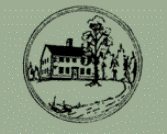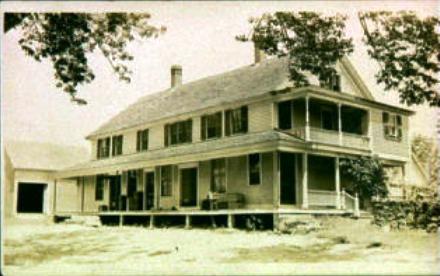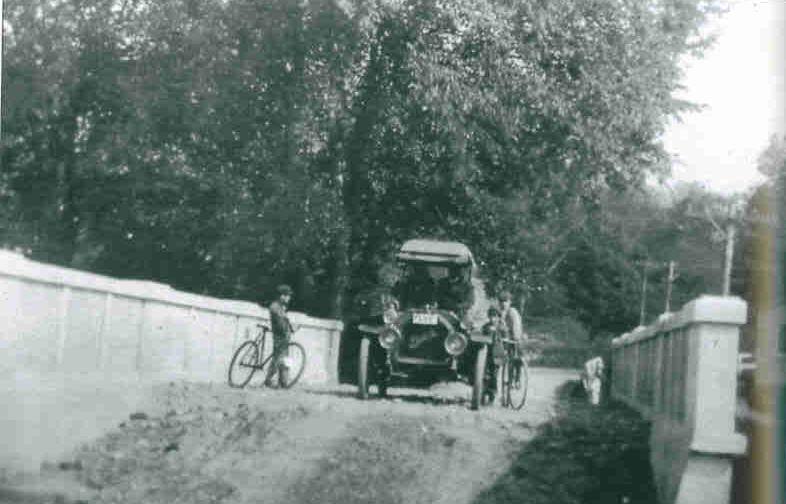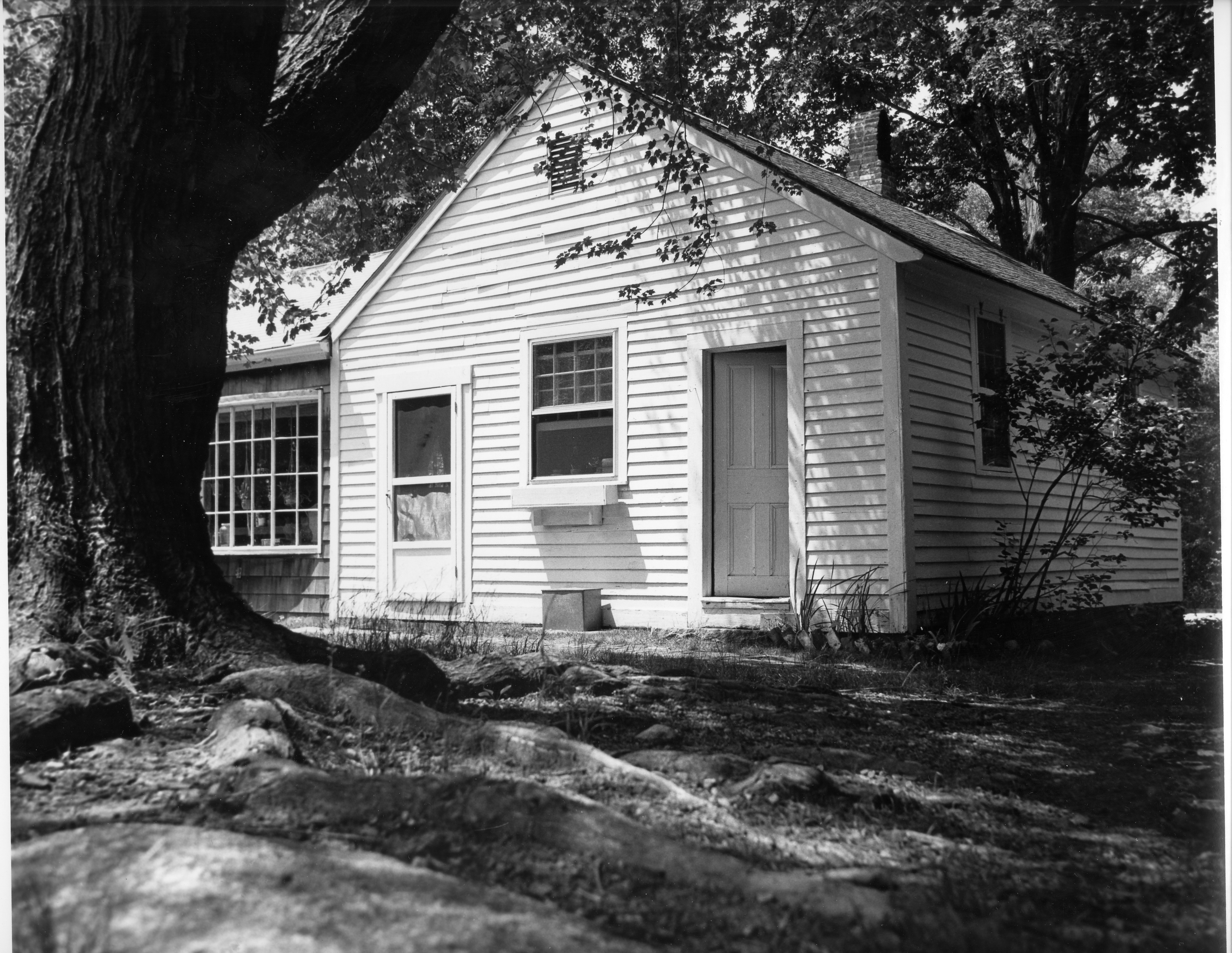|
|
|
Foster Preservation Society |
|
Most Endangered Properties Program |
|
Beginning in 2011, the Foster Preservation Society initiated a Most Endangered Properties program. Each year, the Society will identify up to five properties as "most endangered" based upon threats which could result in the permanent loss of that property. Identified threats include but are not limited to deterioration, neglect, possibility of demolition, insufficient funds, insensitive public policy, and inappropriate development. The identified properties will be those which represent an important aspect of local community life and character.
The purpose of this list is to generate interest in and support for the preservation of significant properties; to educate the public about the unique historic properties of our town and the benefits of historic preservation; and to provide an opportunity to work toward solutions with property owners, and other interested parties to bring about positive change in each property.
This year's list of Most Endangered Properties includes:
The Hopkins Mills Union Church
See below for details on each property.
Most Endangered Properties - 2023
1. Hopkins Mills Union Church
The South Foster Union Chapel, also known as the Hopkins Mills Union Church, is located at 36 Old Danielson Pike in the Historic Village of Hopkins Mills. The historic Chapel building along with the entire village of Hopkins Mills was added the National Register of Historic Places in May of 1984.
The Chapel has always been owned by the South Foster Union Chapel Society, which was formed in 1868. The building was initially conceived as a meeting place for all religious and civic gatherings as noted in the Society’s original constitution:
“A house of worship shall be erected and maintained by funds raised by voluntary subscription and said house shall be free for all to enjoy alike, and shall be open and used for intellectual, social, and moral, as well as religious gatherings and shall be free for the use of all evangelical denominations at all times …”
Construction began after a subscription campaign was initiated in 1868. The campaign was spearheaded by Jane Walker, a local resident who traveled extensively throughout the State to obtain contributions towards construction of the Chapel building. One noted contributor was U.S. Senator Nelson W. Aldrich who was born in Foster, RI. The successful campaign raised the $2000 necessary to cover construction costs and local individuals donated much of the labor required to raise the structure. Construction of the Chapel was completed between 1869-1871.
The Statewide Historical Preservation Report for the Town of Foster published in 1982 describes the architectural features in detail, as follows:
“This 1-story, late Greek Revival, clapboarded church, with pedimented gable front and short enclosed tower, stands on a rise, gable end to the road, near the eastern end of Hopkins Mills.”
On Sunday, October 15, 1871, the noted Reverend H. L. Hastings of Boston performed the Chapel’s dedication service. The early history of the Chapel shows a vigorous beginning with a different pastor preaching there each Sunday of the month to preserve the non-denominational character of the Chapel. In 1910, granite steps built from stone proudly quarried in the Town of Foster replaced the Chapel’s original but deteriorating wooden steps. Over the years, the number of functions held within the Chapel became less common as the original Society members passed on or moved away and although there was a brief revival in the early part of the 20th century, the Chapel has recently fallen on hard times.
The non-denominational past, which was at one time the Chapel’s greatest strength, has in recent years become its bane. The lack of a single large religious group possessing exclusive ownership has left the Chapel without significant support. Coupling this with a Chapel Society whose membership is decreasing in numbers and advancing in years, has left the Chapel with diminishing resources and an uncertain future.
The imminent decay and potential loss of this important piece of local history is of grave concern to the Foster Preservation Society. Recently, the Chapel Society has begun to seek funding to repair and restore the Chapel. A few years ago the Chapel Society was successful in obtaining a grant to put a new roof on the Chapel. This has been accomplished, but significant repairs are still required.
The South Foster Union Chapel continues to be non-denominational and open to gatherings of all religious faiths and has served residents in this capacity for nearly 150 years. By virtue of its notable past, the Chapel is a local symbol of the independence and individualism which have been hallmarks of Rhode Island since its founding.
Due to the unique and historic nature of the South Foster Union Chapel, the Foster Preservation Society wholeheartedly supports any and all efforts to repair and restore this beautiful and notable structure.
Forever Lost!!! Removed from the Most Endangered Properties list:
Hopkins Mills Bridge Bridge no. 96 - Old Danielson Pike over the Ponagansett River.
Sadly, the Hopkins Mills Bridge was demolished by the RI Department of Transportation in January/February of 2014. While the Foster Preservation Society vehemently opposed the demolition of this bridge because of its historic past we were unable to save it.
Hopkins Mills Village is the original point of settlement in the Town of Foster. First inhabited in approximately 1720, Hopkins Mills is an historic mill village which has retained its uniqueness through all of the intervening years. Demolition of the bridge has permanently bisected the village and destroyed the integrity of this important National Register site.
In addition to dividing an historic village, there are significant safety concerns. If there were to be a fire on the eastern side of the bridge, in its current state fire trucks would not be able to access the eastern end of Hopkins Mills Village. It was believed that repair of the Hopkins Mills Bridge would correct this problem in the near future, but with the demolition, the eastern two-thirds of the village will become rather inaccessible to fire trucks. All other means of access into the Village are less than adequate to allow passage of fire trucks and other large rescue vehicles. The amount of additional time needed for a fire truck to traverse these inadequate and circuitous routes will increase the danger to our firefighters, place the lives of Foster residents at risk, and virtually ensure total loss of any burning structure located in the Hopkins Mills Village. We mourn the loss of this bridge.
Forever Lost!!! Anthony Road Bridge (RIP - 1781-2013) Bridge no. 876 - Anthony Road over Hemlock Brook.
Sadly, the Anthony Road Bridge was demolished by the RI Department of Transportation in the Spring of 2013. While the Foster Preservation Society vehemently opposed the demolition of this bridge because of its historic past, we were unable to convince the State to save it. All that remains of this historic bridge are the stone abutments and central the support. A bridge appeared at this location on a 1781 map of the area town.
A Preservation Success Story
Jenks School House (1647 #373) Located near the intersection of Foster Center Road (route 94) and Victory Highway (route 102).
This small, 1-room school house, three bays wide and two bays deep, was used until school consolidation took place in 1952. A one-story addition was built at a right angle to the schoolhouse when it was converted into a residence in the 1970’s.
This historic schoolhouse, while it was for a time in danger of being demolished has been sold to a new owner, refurbished as a residence, and remains standing. This building is no longer in jeopardy.
A Preservation Success Story The Abram Walker House Located on the north side of South Killingly Road
This house, located on South Killingly Road near the junction with Walker Road, was recently up for sale and was potentially in danger of demolition.
The Preservation Society has been notified that the new owner of the Abram Walker House (who currently wishes to remain anonymous) intends to "preserve its historical significance." The new owner will obviously need to make some upgrades to this house, which was built in 1780, but states that they are "very much interested in the history of that building and the person(s) who built it and owned it through the years." The Foster Preservation Society commends the new owner for their commitment to preservation in the Town of Foster and welcomes them to our community. With this commitment, the Society has removed the Walker house from our list of Most Endangered Properties.
The description of the Walker Farm shown below was taken from the Rhode Island Historical Preservation and Heritage Commission (RIHP&HC) survey of Foster, the picture is from RI Statewide MLS.
Walker Farm c. 1780: This generously proportioned, typical center-chimney house with set-back eastern ell was restored in the 1960s. Several small sheds at the rear, a well house in front, and a 19th-century shingled barn with a square cupola ventilator at the west maintain the agricultural flavor of the setting which has been somewhat suburbanized by the loss of stone walls, the building of a pond and swimming pool, and the installation of expansive lawns. The house was built by one of the Walker brothers, Stephen or Abram, sons of Abram Walker who moved to Foster before 1781. The house of the other Walker brother, now altered almost beyond recognition, stands west of this farm, Stephen and Abram ran a blacksmith shop and foundry at a site on a nearby brook. This site still shows remnants of sluice, mill foundation, wheel pit, and dam with pond. The foundry building stood until about 1900 and in it were made wagons and plowshares among other items. |





